#sultana handan
Explore tagged Tumblr posts
Text

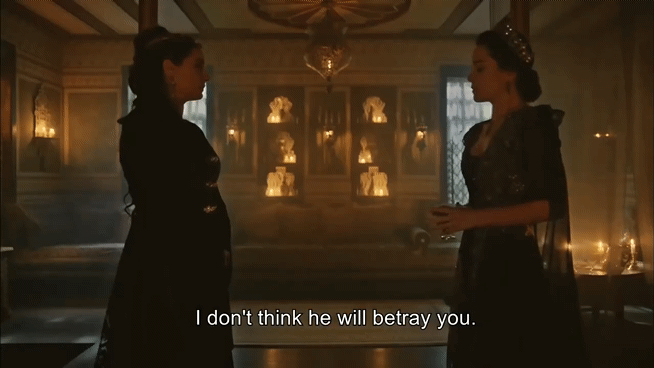


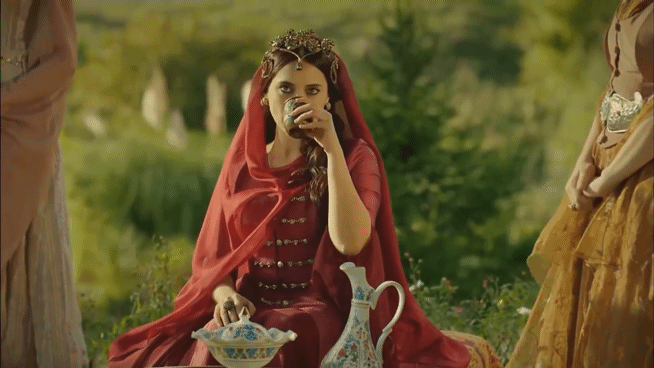
#history#magnificent century#muhteşem yüzyıl#ottoman#sultanas#ottoman history#ottoman sultanas#ottoman valide#valide sultan#Halimesultan#halime sultan#halime and handan#handan sultan#sultana handan#sultana halime
25 notes
·
View notes
Text














"The Valide Sultan’s seat of authority was often placed near the window or in a prominent corner of her chamber, where light illuminated her figure, further emphasizing her elevated status as the mother of the Sultan and the head of the imperial household." - Ottoman Women in Public Space, Madeline C. Zilfi
#Muhteşem Yüzyıl#Magnificent Century#mcedit#Muhtesem Yuzyil#kosemedit#Muhtesem Yuzyil kosem#magnificent century kosem#Muhteşem Yüzyıl Kösem#Hurrem Sultan#Kosem Sultan#history#historyedit#Ottoman history#Asian history#Turkish history#Sultanate of Women#weloveperioddrama#perioddramaedit#period drama#historical drama#Magnificent Century: Kösem#mc: kosem#Awkward-Sultana#Handan Sultan#Halime Sultan#Safiye Sultan#Hafsa Sultan
198 notes
·
View notes
Text
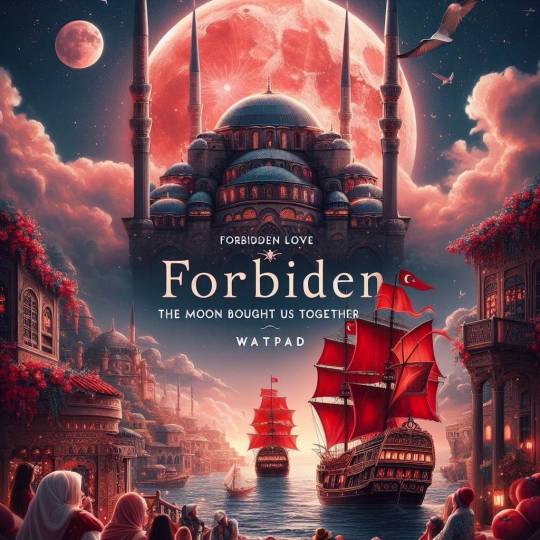
Hola soy la escritora de la saga AmorProhibido aquí pondré cosas de la saga
Amor Prohibido trata de una historia de amor reencarnado, de amor en el palacio otomano con una hermosa sultana criada por piratas con leyendas del mar
#Amor Prohibido#imperio otomano#Fantasia#Escritura#Sultanes#Sultanas#Piratas#Sultana Leanna#Sehzade Kadir#Sultana Alev#Sehzade Kerem#Sehzade Khan#Sehzade Kaan#Sultan Serkan I#Haseki Handan Sultan#Sehzade Miran#Mahfiruze Gulbahar BasKadin#Sultana Hanzade
0 notes
Text
Master Post - Women
Themes
Costumes | Jewellery | Props
Valide Sultan
Hafsa Sultan
Halime Sultan
Handan Sultan
Kösem Sultan
Nurbanu Sultan
Safiye Sultan
Turhan Sultan
Haseki Sultan
Ayşe Sultan (Harem of Murad IV)
Dilaşub Sultan
Hümaşah Sultan (Harem of Ibrahim I)
Hürrem Sultan
Mahidevran Sultan
Muazzez Sultan
Sultanas by birth
Atike Sultan
Ayşe Sultan (Daughter of Kösem)
Ayşe Sultan (Daughter of Şehzade Bayezid)
Ayşe Hümaşah Sultan
Beyhan Sultan (Daughter of Hafsa)
Beyhan Sultan (Daughter of Turhan)
Bican Sultan
Dilruba Sultan
Esmahan Sultan
Fahriye Sultan
Fatma Sultan (Daughter of Hafsa)
Fatma Sultan (Daughter of Kösem)
Gevherhan Sultan (Daughter of Kösem)
Gevherhan Sultan (Daughter of Nurbanu)
Hanzade Sultan
Hatice Sultan (Daughter of Hafsa)
Hatice Sultan (Daughter of Şehzade Bayezid)
Hümaşah Sultan (Daughter of Safiye)
Huricihan Sultan
İsmihan Sultan
Kaya Sultan
Mihrimah Sultan (Daughter of Hürrem)
Mihrimah Sultan (Daughter of Şehzade Bayezid)
Nergisşah Sultan
Şah Sultan (Daughter of Hafsa)
Şah Sultan (Daughter of Nurbanu)
Concubine Sultanas
Defne Sultan
Farya Sultan/Farya Bethlen
Gülbahar Sultan
Mahfiruze Sultan
Meleksima Sultan
Mihrünnisa Sultan
Rana Sultan
Concubines & Harem Members
Afitap Hatun
Akile Hanim
Anna Hatun
Ayşe Hatun (Harem of Şehzade Mustafa)
Cihan Hatun
Dilşah Hatun
Efsun Hatun
Elanur Hatun
Elif Hatun (Harem of Şehzade Mustafa)
Fatma Hatun
Firdevs Hatun
Firuze Hatun
Gülfem Hatun
Gülnihal Hatun
Gülsen Hatun
Hanife Hatun
Hazal Hatun
Helena Hatun
Katerina Hatun
Mahfiruz Hatun
Nazenin Hatun
Neze Hatun
Nurbahar Hatun
Olga Hatun
Rümeysa Hatun
Sadıka Hatun
Sanavber Hatun
Şayeste Hatun
Yasemin Hatun
Zarife Hatun
Unnamed Harem Members
Servants
Afife Hatun
Canfeda Hatun
Cennet Hatun
Daye Hatun
Derya Hatun
Dudu Hatun
Elif Hatun (Servant of Gevherhan Sultan)
Emine Hatun
Esma Hatun
Eycan Hatun
Fahriye Kalfa
Fidan Kalfa
Gülbahar Kalfa
Gülperi Hatun
Gülşah Hatun
Gülşah Kalfa
Hatice Kalfa
Hircan Kalfa
Kumru Hatun
Lalezar Kalfa
Melek Hatun aka Madame Margaret (Servant of Farya Bethlen)
Melek Kalfa (Servant of Fatma Sultan)
Meleki Hatun
Menekşe Hatun
Nadia Hatun
Narin Kalfa
Nazlı Hatun
Nigar Kalfa
Nilüfer Hatun
Sedef Hatun
Ottoman Citizen
Armin Hatun
Cevher Hatun
Dilanur Hatun
Eleni Hatun
Esmanur Hatun
Ester Hatun
Foundation Ladies
Hanım Ağa
Kalika Hatun
Rakel Hatun
Sabiha Hatun
Zeynep Hatun
Unnamed Istanbul Citizens
Europeans
Anna Jagiellon
Carmina
Catherine of Brandenburg
Gabriella Sfenza De Feo
Gracia Mendes Nasi
Isabella Jagiellon
Princess Isabella Fortuna
Portia Gritti
Sara Hatun
Signora Benetto
Silvia Conterini
Unnamed European Characters
Other
Aybige Hatun
Eftelya Hatun
Rita Hatun
Saliha Hatun
#Muhteşem Yüzyıl#Muhteşem Yüzyıl: Kösem#Magnificent Century#Magnificent Century Kösem#Magnificent Century Kosem#Master Post
17 notes
·
View notes
Text
My Problem with Kösem (Season 1)
On the recommendation of a member of this sub, I watched a video discussing the Mary Sue trope, and it perfectly articulated why I believe Beren Saat’s Kösem is a Mary Sue, and why I found the character so frustrating. I will discuss how season 1 of Kosem sacrifices realism, historical accuracy, and the integrity of its characters in order to glorify Kösem, making her a textbook example of the Mary Sue.
A Story That Exists to Serve Kösem’s Greatness
One of the defining characteristics of a Mary Sue is that the story does not function as an independent narrative but instead exists solely to showcase the protagonist’s greatness. From the moment that Beren Saat’s Kösem is introduced, the show goes out of its way to emphasize how "special" she is, often at the expense of realism or historical plausibility. This is immediately apparent in her first scene in which she, then a random concubine, single-handledly stops the rebellion and saves everyone in the palace. To justify such ludicrous event, the writers come up with something even more ludicrous : she gets shot in the chest and doesn’t even bleed. This moment sets the tone for how the show will treat her : an almost divine savior.
Unlike Hürrem or Nurbanu, whose rise were marked by years of struggle, suffering, and gradual strategic victories, Kösem's power is essentially handed to her (which she says herself when she brags to Safiye about not comparing her to anyone cuz she never had to climb the stairs one by one). She is granted the privileges and honors of a sultana before even giving birth to a son, an honor that would have been unheard of in the historical Ottoman harem. The erasure of Handan’s regency, while making teenage Kosem more politically consequential than her, further exemplifies the show’s determination to place Kösem at the center of history, even at the cost of ignoring actual historical figures who wielded real influence before her. It’s honestly particularly grating to see a show that wants to celebrate powerful women, diminish one to prop up another.
Her rapid rise defies all logic. Despite having been in the harem only for a short period, she immediately becomes a pro at playing the game of thrones, not only going toe-to-toe with Safiye, but regularly outmaneuvering her. This dynamic weakens the credibility of the narrative because it diminishes the gravity of Safiye’s established experience. Kösem’s victories come too quickly and too easily, robbing her of the sense of struggle that makes a protagonist compelling. She becomes the head of the harem at the age of 16 or 17, an absurdly young age for such a powerful position. She is immediately regarded with a level of reverence that does not feel earned, as even her enemies acknowledge her brilliance almost from the outset. Notably Safiye, who almost immediately sees her as a worthy equal. While some might point to setbacks such as the death of her father or being manipulated into killing her sister, these moments do little to counterbalance the overwhelming ease with which she dominates the court and how she consistently wins.
And that’s the key problem I have with Kosem’s character, her greatness is not earned through organic character development. Her transition from a powerless concubine to a political mastermind happens almost overnight, without the gradual development that would make her rise believable. She is just born great, and the world around her simply falls into place to recognize her importance.
Contrived Victories and Plot Conveniences
A crucial feature of Mary Sue characters is that their successes are not earned but rather handed to them through plot conveniences. Kösem’s triumphs frequently occur more often than not, not because of her intelligence or skill but because her adversaries make inexplicably dumb decisions, like Safiye’s nonsensical and pointless kidnapping of Mehmed (which lasted 5 minutes before she gave him back). Safiye also has to deal with a ridiculously stupid daughter, that writes and signs with her seal a letter confessing to her regicide attempt. Both Handan and Halime keep making stupid decisions as well (like Halime being the one with the most incentive to kill Kosem's sons within the show narrative, yet dragging her feet)
Another example, during the coup to place Mustafa on the throne, all of Safiye’s supposedly elite guards forget how to fight, allowing Zülfikar, Kosem’s ally, to single-handedly defeat them like an anime protagonist. Kosem also just so happens to know a secret passage that allows her to get everyone out safely. These moments do not feel like the result of Kösem’s brilliance but rather the script bending over backward to ensure she always comes out on top. This also undercuts the stakes of the conflict between her and Safiye, reducing Safiye from a calculating political player to a paper-thin villain whose sole purpose is to lose to Kösem.
The Show’s Self-Congratulatory Approach to Kösem’s Characterization
And through these contrivances and the utter ineffectiveness of her enemies, Kosem’s greatness never feels earned. The show is self-congratulatory but hypocritical in its approach of Kosem’s greatness, as it beat us over the head at how amazing she is and basically always winning, and how everyone adores her but is reluctant to explain why or how this happened. How did she acquire such unparalleled influence on the army, statesmen and scholars ? These are crucial aspects of her political rise, yet the show glosses over them in favor of simply presenting her as an inherently powerful figure. It’s a shame because it would have been so interesting to see her work hard for it and struggle (remember how long it took Hurrem to find her first real political ally in Iskender Celebi?).
Furthermore, even when she displays negative traits—such as being judgmental or hypocritical—these flaws ultimately feel moot because she is always framed as being right in the end. She is always on the right side of history, always making the wisest decisions, and always the most beloved figure in the empire. No matter the situation, Kösem’s decisions are presented as morally justified, her political maneuvers as necessary, and her adversaries as either evil, short-sighted, or incompetent. The writers are so preoccupied with celebrating Kösem’s supposed greatness that they fail to write her in a way that naturally earns the audience’s admiration.
The Center of the Universe: How Kösem Warps the World Around Her
A crucial aspect of the Mary Sue trope as explained in the video is that the protagonist is not simply the lead of the story but its absolute center, to the point where the world bends to accommodate them. Everything has to be about them. This is particularly evident in the way the show rewrites historical events to make Kösem the primary force behind them.
The most blatant example is making her the reason behind the end of the fratricide law, by giving to her the decision to place Mustafa on the throne, which historically was not Kösem’s doing, implying that she single-handedly reshaped Ottoman succession. This not only misrepresents the complex political power struggles of the time, which involved numerous factions, viziers, and military forces, as well as the changing way of life of sultans (from the warrior sultan to the sultan who rarely leaves the place the place) and the growing unpopularity of fratricide that during the ascension of Murad III and Mehmet III was mostly slaughtering defenseless infants, but also reinforces the idea that Kösem is the sole architect of the empire’s future.
Even beyond rewriting history, the show fails to justify why Kösem’s decision makes sense. Mustafa’s reigns were disastrous, and his survival led to the implementation of the Kafes system, which contributed to the empire’s long-term decline. If Kösem is meant to be a visionary leader, why does her supposed “reform” directly lead to such terrible consequences? This inconsistency arises because the writers are more focused on finding ways to glorify Kösem (see, princes won’t die anymore thanks to her ! ) than on crafting a logically coherent narrative.
Also her being the protagonist does not justify it all. There is a difference between being the hero of the story and being the center of the universe. A well-written protagonist shapes the narrative through their choices and struggles, and allows other characters to exist on their own terms, while a Mary Sue warps the world around them to elevate their importance. Kösem is not just a key player in history—she is made the driving force behind nearly every major event, often at the expense of logic, realism, and other characters' agency. The show does not let history unfold naturally; instead, it reshapes reality to ensure that Kösem is always the most significant figure, no matter how contrived it feels.
Sacrificing Other Characters on the Altar of Kösem’s Greatness
To further establish Kösem as the most brilliant and powerful figure in the story, the show systematically weakens or vilifies other characters who might challenge her.
We saw it with Handan, but it’s also the case with Safiye. While she has her saving grace in being played with remarkable gravitas by Hülya Avşar, Safiye still suffers from the Kosem-centric narrative, even as a villain. We saw that Kosem basically immediately proved herself to her match, rendering Safiye’s years of experience not impressive at all. While Safiye retired from political life early in Ahmet’s reign in history, the show decides to make her the big bad. Yet how I am supposed to take her seriously when she is almost constantly getting bested by a teenage girl? Safiye is supposed to be a lot more powerful than Valide Hafsa ever was, yet the latter was a lot more effective against Hurrem.
Similarly, Dilruba, whose motivations in the series—wanting to place her brother on the throne to ensure his safety and happiness and seeking revenge for his suffering—mirror the motivations of characters like Mahidevran and Hurrem who did terrible things but also had many sympathetic moments, is framed as unreasonably vengeful and cruel. Rather than portraying her as a woman fighting for her family’s survival, the show presents her as an unhinged antagonist, allowing the audience to dismiss her as a petty villain instead of a complex figure with legitimate grievances. Same for Halime Sultan, instead of depicting her as a powerful woman in her own right, the show makes her dependent on Kosem’s goodwill and then even morse frames her desire to take control over her son’s destiny as ingratitude. (They could never make me hate them though)
To glorify Kosem, the writers are also not afraid to sacrifice established characterizations and relationships. Bulbul Agha, who worships the ground Safiye walks on, betrays her by saving Kosem in a moment of contrived loyalty to the latter, diminishing the credibility of Bulbul’s longstanding devotion to Safiye. Likewise, Hacı Ağa, who is deeply loyal to Handan Sultan and emotionally invested in her well-being, betrays her to serve Kosem’s interests, which leads to her suicide, conveniently leaving the place as head of harem empty. Zuilkar is in love with Humasah, yet reveals to Kosem Iskender's secret identity one episode after learning about it from her. Also, If it’s about loyalty to the throne, why not tell the truth to Ahmet directly ? These betrayals feel contrived to me and serve only one purpose imo: to reinforce Kösem’s importance, proving that even her enemies’ most loyal allies will ultimately turn to her side.
Now we need to talk about Osman. Kosem’s decision to enthrone Mustafa led to him being locked up for months and almost murdered. But rather than allowing Osman to express his grievances in a way that challenges Kösem’s supposed infallibility, the show infantilizes him, presenting his grievances as the tantrums of an immature teenager rather than the legitimate response of a young man who felt betrayed by the person he loved the most.
And when Osman takes the throne, because he sent Kosem away, the show portrays him as reckless and emotionally volatile, with his efforts to reform the empire and rein in the Janissaries presented as poorly thought-out and self-destructive. In reality, Osman’s policies were bold but not entirely misguided; he recognized that the Janissaries had become corrupt, too convinced of their own power and resistant to reform, and his desire to replace them was motivated by a clear understanding of the empire’s declining military discipline and the danger they posed to the stability of the sultanate. However, rather than engaging with the historical complexities of his rule, the show flattens him into an antagonistic force that exists solely to contrast Kösem’s wisdom and political superiority. It’s also clear the show doesn’t want us to see his perspective - Kosem committed treason by meeting with his council behind his back? She only did it to protect him, why can’t Osman just accept to be babied and undermined? Despite Kosem’s actions almost leading to his death and her never even apologizing for it, he should just get over it and recognize she had his best interest at heart, be grateful even.
Even his assassination—the first time in Ottoman history that a sultan was deposed and killed by his own troops—is rewritten to serve Kösem’s story. Rather than focusing on the historical implications of this event, the show frames it as a lesson: had Osman simply listened to Kösem, he would have survived. Even in his death, the narrative remains about her**.** She also gets to express her grief as if she played no part in his demise, the fault being placed on Halime, Dilruba and Davud instead. It’s especially egregious because if Kosem didn’t want Osman dead then what fate did she prepare for him after he was dethroned? To be locked up in a room like his uncle, becoming insane and broken beyond repair? Yet somehow, this is completely dismissed by the narrative.
In conclusion, by manipulating history, undermining other characters, and bending the rules of the universe to accommodate Kösem’s dominance, the show sacrifices its own narrative integrity to ensure that Kösem remains, at all times, the singular and undisputed center of the story. In doing so, the show turns what could have been a rich and compelling historical drama into a frustrating exercise in character worship, where no matter the event, no matter the cost, everything must ultimately be about Kösem.
11 notes
·
View notes
Text
Family tree of Mehmed III
Mehmed (1566.05.26. - 1603.12.22.) - Handan (~1568 - 1605)
Ayşe 1583-1632/9 - Destari Mustafa Pasha 1602-1610 * 2 daughters and one son, who all died young - Gazi Hüsrev Pasha 1613-1632
Selim 1585-1597
Şah 1587-1617/8 - Mirahur Mustafa Pasha 1604-1610 * three sons, all died young - Cigalizade Mahmud, son of Cigalizade Yusuf Sinan Pasha 1612-until her death * Mehmed (?-a. 1650), Mustafa (?-?), Karahoca Ibrahim Kethüda (?-a. 1650)
Ahmed I 1590-1617
Süleyman ~1593-1597
Nani believes she had one son Osman, who was 3 or 4 in 1600
Mehmed (1566.05.26. - 1603.12.22.) - Halime (~1568 - after 1624)
Hatice 1585-1617? - Mustafa Aga, one Yeniçeri officer
Mahmud 1587-1603
Safiye 1590-? - Davud Pasha 1604/1605 (consummated 1606)-? * Süleyman (after 1606 - after 1662)
Halime - She could be the wife of Tiryaki Hasan Pasha (1604-1611), but maybe she was unmarried until 1622. - She could be the wife of Budin Ali Pasha (?-1616?)
Cihangir 1598-1602 (identity of his mother is not known for sure)
Mustafa I 1600-1639
And Mehmed III had another daughter Hümaşah, but we dont know anything about her. She could be the wife of Tiryaki Hasan Pasha (1604-1611), or the wife of Budin Ali Pasha (?-1616?) or none of those.
Theories:
Ayşe: I believe she was the eldest daughter of Mehmed, and so the daughter of Handan. Mehmed got Handan after his circumcision in 1582 June, so they could start reproduction in August or so. In 1600 Nani said, the sultan had a daughter, who was 18 years old and that the sultan is thinking about her possible husbands. Based on ottoman calculations 18 is actually 17, so she was born in 1583. Back then Handan as a new favourite, gift of the beloved aunt of Mehmed, possibly was a soley sexual partner for a while making logical that Mehmed's first child was Handan's. And as Destari Mustafa seems to be the first Damad of Mehmed III's daughters, his wife should be the eldest Sultana.
Ayse: She survived her husband in 1632 but does not mentioned after 1639 in the register she was listed previously, which could mean she died between 1632 and 1639 or she moved back to the Old Palace, and so we should search for her in another register.
Halime: All we know is that she was unmarried in 1622. This could mean: she was too young to be married off or simply she was widowed. I personally think she was the wife of Tiryaki Hasan Pasha between 1604 and 1611, then a widow until 1622 (at least), or also the wife of Budin Ali Pasha until 1616.
Hatice: Actually the identity of her mother is not known for sure. She is referred to as Halime's daughter in one source, however, her husband's identity is wrong in that source, so maybe she was not Halime's but a random consort's. Her husband is quite low-level compared to others, so maybe she did not have a brother. OR the identity of the husband (yeniçeri officer) supports the original theory of her being Halime's. We know how Mahmud and Halime had a close relationship with the janissaries and then. Maybe Hatice had something to do with it through her hubby? True, her husband was a Yeniçeri leader only in 1616, and true, that we don't know the exact date of their wedding. The agha died at the end of 1616 and Hatice is lost from history. Maybe she died, maybe remarried.
For Hümaşah it is possibly she died before being married to anyone, or she may was the wife of Tiryaki Hasan Pasha between 1604 and 1611, and/or the wife of Budin Ali Pasha until at least 1616.
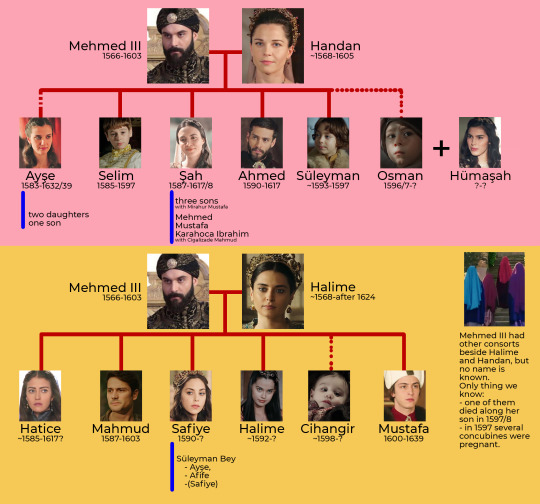
18 notes
·
View notes
Note
i acknowledge that this is a repetitive question, but i'm curious about how would you rank the SOW sultanas in the MC franchise based on intelligence.
It's not a repetitive question at all! Anyway all of this relies on how you define intelligence if you ask me. How do things like making mistakes that cost you but bouncing back learning from them, impulsivity, raw success and other such qualities.
Mahidevran Sultan: She very often gives Mustafa fairly good advice. But the strategies that she herself acts on usually aren't that well thought out. She's no fool but she also isn't the smartest sultana by far.
Hürrem Sultan: She is very often, at least at first, hampered by her own hotheaded and impulsive tendencies. But she can be very observant and very quickly learns how to use the things that she picks up on to her advantage. She is very strategically adept and very good at reading people. Not to mention her own character growth and evolution clearly showing her comparative self-awarness and ability to learn and adapt. Most of her failures, especially later on, hinge on the fact that she is genuinely caught between a rock and a hard place. Easily the majority of her errors are forced.
Nurbanu Sultan: She too can be hotheaded but she also learns quickl and thinks on her feet. The only problem with analysing her is the fact that we only have one season of her and don't ever see her as Valide. So there's crucial steps to her development and evolution that we miss out on. Which makes judging her significantly harder than judging say Hürrem or Mahidevran.
Safiye Sultan: Disclaimer that I haven't seen MC:K In a while but she's another character who is hard to judge just because we miss out on so much of her development. She's clearly very intelligent and able to wield power. But very often what we see of this comes down more to the threat of violence than it does to traditional harem scheming per se. But she is very astute especially when it comes to diplomacy.
Handan Sultan: Her intelligence wasn't what stood out to me about her. It was her anxiety.
Halime Sultan: She was clearly quite intelligent and had a mind for schemes but she was severely hampered by desperation and being caught between a rock and a hard place.
Kösem Sultan: She learns a lot and learns quickly although early on especially she could be naïve. But particularly season 2 Kösem was politically one of the most adept characters in the show. You don't get to where she got without having a good head of braincells. And when she makes mistakes it's usually due to arrogance or desperation rather than anything else.
Turhan Sultan: I mean she is ruthless so I'll give her that much...but once again my ability to properly analyse her characterisation is the utter lack of characterisation that she gets which is lost to the criminal amount of timeskips that we got towards the end of season 2 of MC:K.
2 notes
·
View notes
Text
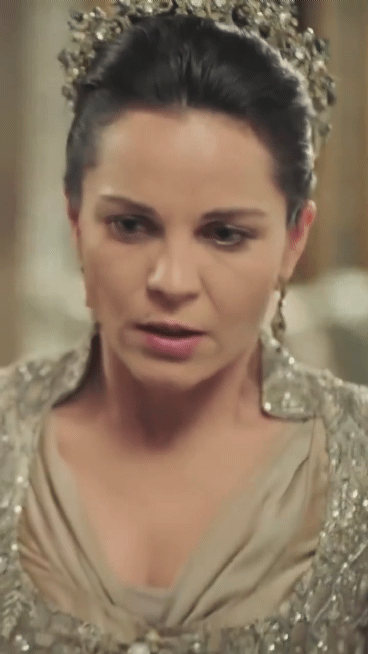
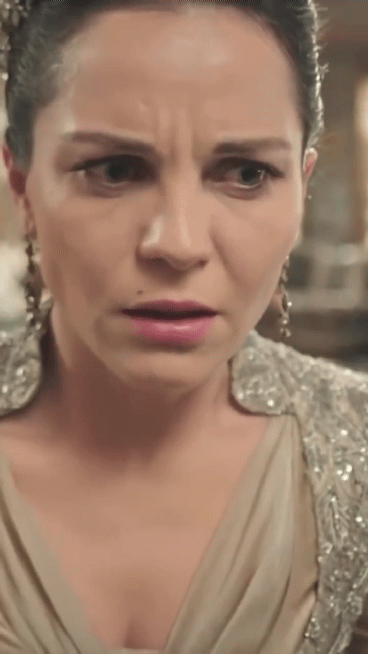

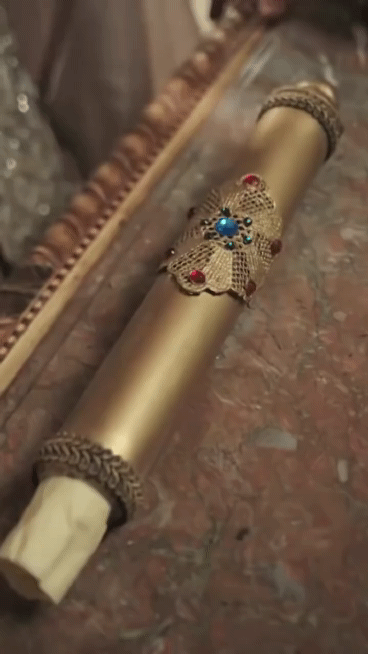
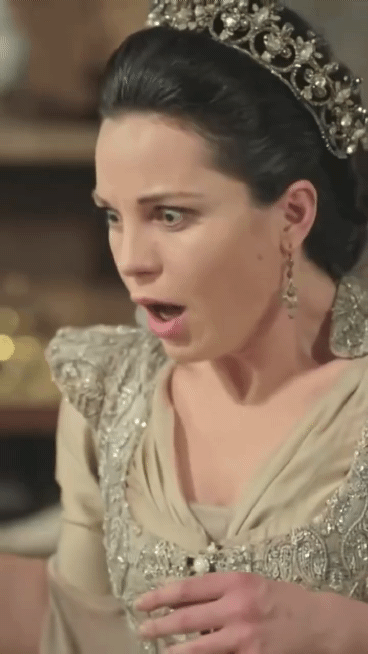
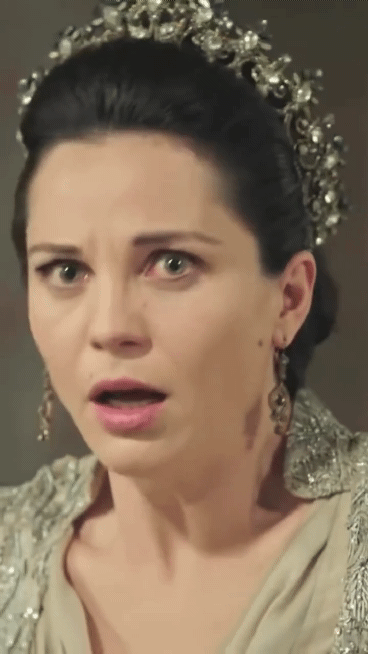
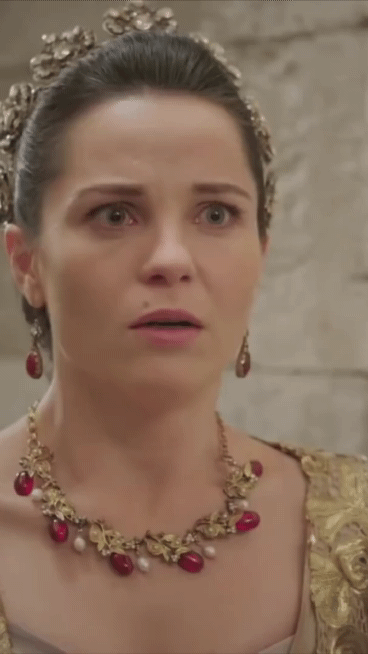
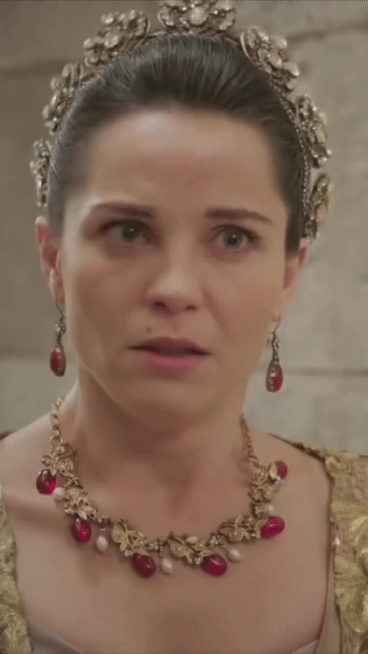
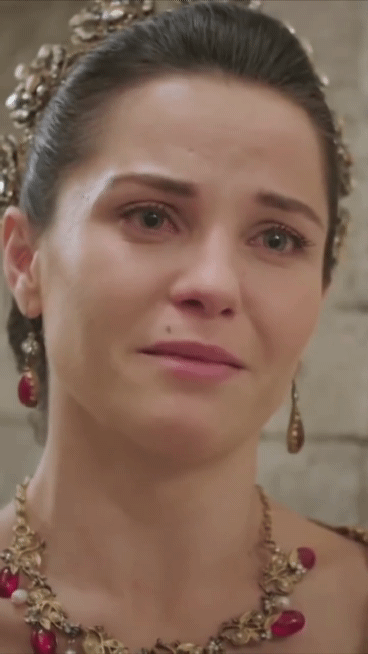

#history#magnificent century#muhteşem yüzyıl#ottoman#sultanas#ottoman sultanas#ottoman history#ottoman valide#valide sultan#sultana handan#valide handan sultan#handan sultan#handan#My gifs
7 notes
·
View notes
Text


























Aslan / Aslanım Lion / My Lion
A striking name of Turkish origin, Aslan is a boy's name that means “lion.” This powerful title is derived from Old Turkic and was used as an epithet for Turkish emperors in the Middle Ages.
#Muhteşem Yüzyıl#Magnificent Century#mcedit#Muhtesem Yuzyil#kosemedit#weloveperioddrama#perioddramaedit#period drama#historical drama#Hurrem Sultan#Kosem Sultan#Nurbanu Sultan#New Home New Rules#Palace of Tears#The Reign of Sable#Muhteşem Yüzyıl Kösem#magnificent century kosem#Magnificent Century: Kösem#mc: kosem#Muhtesem Yuzyil kosem#Handan Sultan#Mahidevran Sultan#Safiye Sultan#Turhan Sultan#Hafsa Sultan#Awkward-Sultana#historyedit
190 notes
·
View notes
Photo
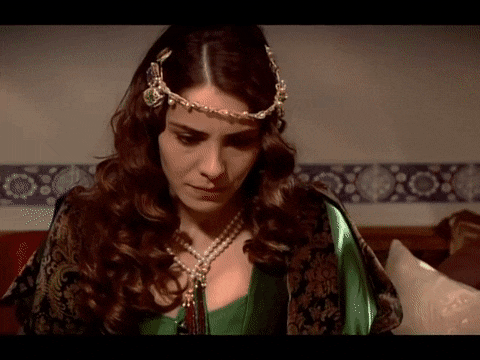

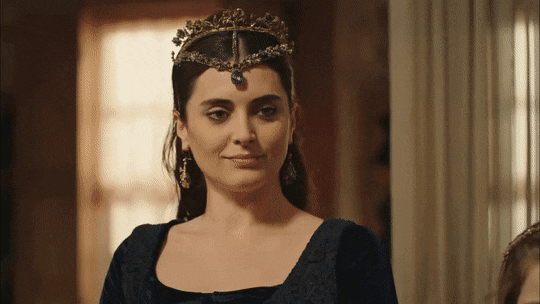

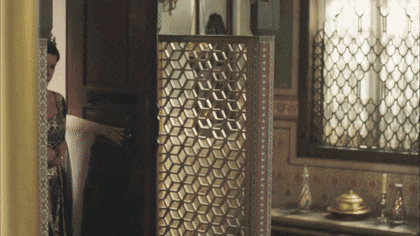
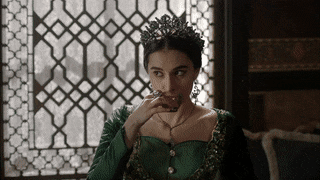
Historical Rivial Sultanas- Muhtesem Yuzyil and Muhtesem Yuzyil: Kosem
#haseki hurrem sultan#hurrem sultan#Mahidevran Sultan#mahidevran hatun#hurrem hatun#halime sultan#handan sultan#mahpeyker kosem sultan#Kosem Sultan#turhan hatice sultan#turhan sultan#muhtesem yuzyil#muhtesem yuzil kosem#magnificent century#magnificent century kosem#rivialry#rival#rivials#sultana#sultanas#enemy#period drama#history#historical drama
32 notes
·
View notes
Text
My analysis/defense of Handan
An unlikely Valide Sultan
One of the main reasons I gravitate towards Handan character is because she was an unlikely Valide Sultan. Not just because her son was not the eldest but because while its never explicitly said, I feel like they were many hints that Handan was not a true favorite, especially if you compare her with Halime. Halime had at least three children, Handan only had one. Halime (at least in the beginning) had powerful contacts, while Handan appeared to be very isolated, with only Dervis and Haci as allies. Halime was influential enough that Safiye would try to bring her down (burning Cennet's face and making it seem like Halime was culprit) while we have no such stories with Handan.
On top of that, for both Handan and Halime, it must have been particularly difficult to be sultanas in a harem dominated by Safiye, who in the show is a true bully and tries to crush anyone that could outshine her even a little. It also seems that Handan has long been identified as "weak" by Safiye, because she has no issue talking down to her and humiliating her when Handan is Valide Sultan. And if she feels comfortable enough to do that when Handan is Valide, one can only wonder how she treated her when she was just a concubine.
Her being an unlikely Valide Sultan also explains why she was so adamant to have Mustafa killed, she must have lived in fear for years then when Mahmud ascends, which seemed the most likely, he would murder her son and of course, the fratricide law has been embedded in Ottoman dynasty politics for so long that its difficult for anyone to believe that its over just because a 13 year old boy sultan said so. And honestly both Handan's and Halime's perspective are valid, they can't take any chances for the safety of their sons, and they both end up doing things that reinforces the fear of the other, which is both ironic and tragic
The price of being soft
Being Valide Sultan does not come easy to Handan, it does not suit her like Hafsa, Safiye or Kosem. Her demeanor is too soft and fragile, and honestly she's not the brightest. And because of that she is constantly being denied the respect she deserves as Valide Sultan, being outshined by Safiye and then immediately after that Kosem, and she is unable to fight back effectively.
Handan is also a romantic, she finds true love (after years of being subjected to her enslaver, who on top of that was a particularly horrible man) with Dervis and while she does nothing physical she still submits to this love and its her one source of joy, but also a source of pain. I also find it particularly poignant when she tells him that being a sultana is a prison for her and that Dervis is her "freedom" -an incredibly underrated moment because this is one of the only, and the most beautiful moment of acknowledging the horrific side of being a concubine
In the end her suicide does not seems to me to be just about being afraid that Ahmet will kill her (though its horrific Handan even though that though) but because she tasted freedom and love and cannot go back to her cage now.
Her son was the worst son
Yes worse than Murad. Murad was horrible but I find it easier to understand his perspective, his mother was controlling, undermined him, wanted him to be a puppet ruler and would flat out tell him to his face that she's the only reason he can have keep the throne, Kosem/Murad is a toxic relationship where they both have their faults. But Ahmet? He had very little regards from the beginning for his mother. He did not respect her and did not care that everyone else was disrespecting her, he did not value her opinion or feelings, consistently put a concubine he only knew for a year above her, and of course physically assaulted her and exiled her, when she was trying to ensure his safety.
Her conflict with Kosem
It made perfect sense for her to be wary of Anastasia, she was gift from Safiye destined to control Ahmet. Anastasia also insulted the sultan in front of the entire harem, which would have gotten anyone else killed on the spot. It also made perfect sense for her to believe she had poisoned Ahmet, because on top of being a gift from Safiye, she had spent the night with Ahmet when he got sick and then ran away. And yet Handan was still willing to believe in her innocence eventually.
Then we have the fact that Kosem betrayed her and like she had a good reason but its still a betrayal that Handan would feel deeply since her son assaulted her and she was humiliated in front of the whole harem
And yet honestly the way Handan "antagonized" Kosem was so light in comparison to what we saw from other mother in laws? Also Kosem decided to fight against Handan because Handan, the Valide Sultan, had the AUDACITY of trying to be the Valide Sultan. Like its so crazy to me that what Kosem takes as a "declaration of war" is that Handan did not let her raise Osman, even though not only it makes perfect sense for him to be raised by his grandmother, it was also considered inappropriate for princes to have close relations with his father's concubines past a certain age (which is why in real life Ahmet started preventing Kosem from seeing Osman). And then she complains to Cennet that Handan wants to control the harem (that's literally her job????)
Kosem's self righteous anger to Handan's feelings for Dervis and hiding the fact that he killed Mehmet III was just an excuse because she could not handle the fact that other people were influential in Ahmet's life. And Haci Agha was just being a bitch for no reason (and its hilarious to see him act so self-right but when Kosem asks him to sterilize a girl, murder a pregnant girl or even kill a little child whose also the literal sultan he's like "yes boss")
Anyway, Handan deserved better both on the meta level that the show humiliated her and erased her regency to prop up Kosem, but also in the show itself
8 notes
·
View notes
Note
Also she said in terms of rank, the Dynasty Sultanas are placed above the Valides and the Hasekies (Something I agree with) Because after all the dynasty sultanas were free women who were not part of the institution of the harem and had imperial blood, but the Valides and the hasekies were slaves.
I can't see a dynasty sultana like Mihrimah bowing to Valide Nurbanu or Dynasty Geverhan Sultan Bowing to Handan.
For me the hierarchy is:
-Older Sultanas (ex: Mihrimah, Gerverhan, Atike..) -Valid Sultanas (eg: Nurbanu, Hadan, Turhan) -Younger Sultanas (ex: Ayse Humashah, Sah Huban, Esmehan)
-Haseki Sultan
-Bas Hatun
-Hatun
I placed the young sultanas under of the Valide Sultans because we are in a Muslim society so elders are very respected. In the case of Humaşah Sultan (Daughter of shezade Mehmed) and Valide Nurbanu Sultan, I think that Humaşah out of respect bowed to Nurbanu since she was her senior and the Valide Sultan.
Both age and title played an important factor to who should bow to who.
No, I'm sorry but I disagree with you two.
The Valide Sultan was the custodian of the dynasty, she was the "elder" not because of her age but because she was a) the mother of the sultan and b) a woman in her post-sexual role.
Now, sexuality was very important in the Ottoman Empire: a woman who didn't have sexual intercourse anymore was considered mature (not in terms of age).
It doesn't matter how old the Valide Sultan was, she was the most mature member of the dynasty (by association, because she had given birth to the sultan).
I understand your reasoning about the princesses being born free but they were still subjected to the Valide Sultan's authority. I also understand why you'd think Mihrimah would not bow to Nurbanu but I think Gevherhan and Handan are a different case altogether because Gevherhan had raised Handan in her household, maybe they had a different relationship because of this.
For example, I think Bayezid II's daughters (and therefore Selim I's sisters) bowed to Ayşe Hafsa.
5 notes
·
View notes
Text

~Mahfiruze~
Mahfiruze was the mother of first - born son (Osman) of Sultan Ahmed I
She was choosen by Handan and Gevherhan Sultanas.
Altough, the mother of the second-born son, Mahpeyker Kösem recived the Haseki Sultan rank and thus Ahmed made clear that Kösem was the favorite consort, Mahfiruze didn't fell out of favor. It is possible that Mahfiruze gave birth to Şehzade Çihangir in 1609. And for sure she gave birth to şehzade Bayezid in 1612. Mahfiruze disappears from harem registers after Bayezid's birth. She possibly died due birthcomplications. Some historians suggest that she was alive during Osman's reign and died in 1629, but there is no proof that Mahfiruze was Valide Sultan.There was a rumor that Mahfiruze was beaten and exiled for irritating Kösem but it seems unlikely that a royal mother,the mother of the first-born prince would be treated so disrespectfull.The main problem of Osman II who ascended as a young boy was that he didn't have a valide who could advise him. During his reign, Osman's wetnurse ruled the harem! Even if the rumor was true, that Mahfiruze was exiled, Osman II as the current Sultan could always recall her back to the palace! Mahfiruze is burried in Eyüp Sultan Mosque and not in Ahmed's Complex, that also suggest that she died in 1612 because the complex was finished in 1616. In 1618, when Osman ascended the throne, he built a tomb for her.
youtube
13 notes
·
View notes
Note
i think i've missed your opinion on her so i'll just ask: what do you think about Handan from Magnificent Century: Kösem?
I haven't seen MC:K season 1 in a while. That said, I liked Handan well enough although I always preferred Halime just because she was more compelling to me personally. Interestingly I don't think Handan is in any way truly comparable to any of the sultanas from the main show in the way in which - for example - Halime can be compared to Hürrem. Handan was clearly a deeply anxious person though. Which is understandable considering that even while she was meant to be Valide Sultan, Safiye did so much to undermine her and cling onto the power that she had held.
And yes I do ship her with Derviş.
2 notes
·
View notes
Text
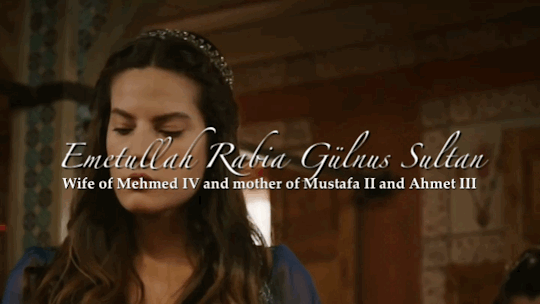


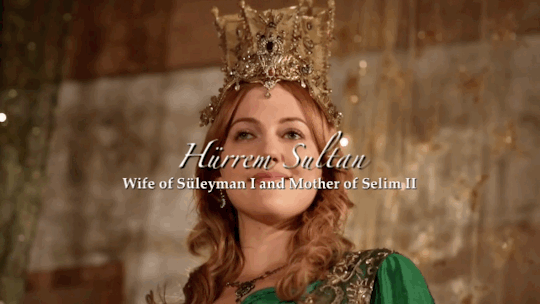


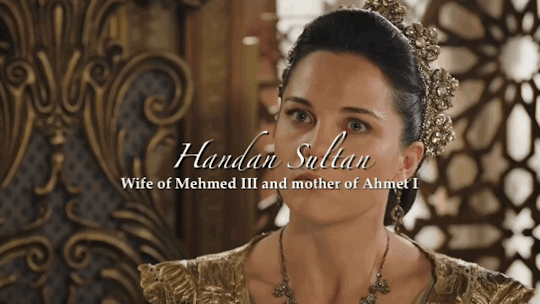
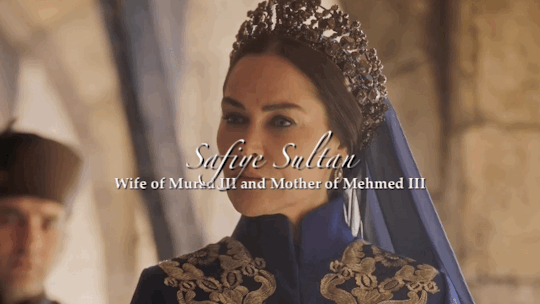
The powerful Ottoman women from the most powerful Ottoman era
Hürrem Sultan - Wife of Süleyman I and mother of Selim II + 4 Shezades and 1 Sultana. Originally from Ukraine.
Nurbanu Sultan - Wife of Selim II and mother of Murad III + 3 (or 4) Sultanas. Originally Venetian.
Safiye Sultan - Wife (or consort) of Murad III and mother of Mehmed III + 4 Sultanas. Originally Venetian or Albanian
Handan Sultan - Consort of Mehmed III and mother of Sultan Ahmet + 2 Shezades and 3 Sultanas. Originally Bosnian.
Halime Sultan - Consort and favorite of Mehmed III and mother of Mustafa I + 1 Shezade and 3 Sultanas
Mahpeyker Kösem Sultan - Wife of Ahmet I and mother of Murad IV and Sultan Ibrahim + 2 (or 3) Shezades and 3 Sultanas. Originally Greek.
Hatice Turhan Sultan - Consort of Sultan Ibrahim and mother of Mehmed IV + 3 Sultanas. Originally Ukrainian.
Emetullah Rabia Gülnuş Sultan - Wife of Mehmed IV and mother of Mustafa II and Ahmet III + 3 (or 4) Sultanas. Originally Greek.
#hürrem sultan#nurbanu sultan#safiye sultan#handan sultan#halime sultan#kösem sultan#turhan sultan#emetullah rabia gülnüs sultan
75 notes
·
View notes
Note
How would you rank the (main) non-blood Sultanas?
Hmm... Again, I would have to exclude the wives of Murad and Ibrahim; I know next to nothing about Ibrahim's harem, and as for Haseki Ayşe and Farya... Haseki Ayşe is a strong candidate for the bottom of the rankings, since she possesses the deadly combination of malice and stupidity, while Farya is somewhere in the middle. Also, with Kösem, I don't take her s2 version into account, although so far she seems pretty high, maybe even at the top. I also don't remember Defne, so people who wanted to see her here are out of luck.
Hürrem/Mahidevran - This one is kinda unfair, since they had much more time and character development than any other sultana, with the exception of Kösem (who wasted a lot of that time with NO character development, see below). I also don't think it's fair to put one ahead of the other; Hürrem is our beloved iconic drama queen, while Mahi had better character development. So yeah. The best sultanas, the most sultanas.
Halime - She did become much less interesting in the back half of the show, and also was stupid enough to trust Safiye with the life of her son that one time. With that said, I can't just ignore how strongly I rooted for her at the beginning.
Handan - She almost tied with Halime, but ultimately lost, because she lacks her charisma. With that said, she's still pretty cool as a mum, grandma and local firecracker who should really think things trough more. Also, she has very good taste in men, and almost killed Kösem that one time.
Gülbahar - I just have a soft spot for her, is all. A prime party with Satan material. My third favourite child murderer. Also, her relationship with Sinan is canon! Other sultanas could have strong subtext (Şah) or tragic yearning (Handan), but Gülbahar is a girl who can Get It. Even if Sinan himself is one of the least charizmatic villains this show has ever seen.
Safiye - An icon in her own right, as you all know. She could be higher, but ultimately I just like everyone above her more.
Nurbanu - I am not a fan personally, but I can see how she could be someone's favourite evil conniving bitch. Plus her and Selim are such an iconic couple!
Mihrunissa - She's fine, I guess. Kinda boring, if you ask me.
Mahfiruze - Annoying af, but at least had the good sense to die early, unlike...
Kösem - Going from Anastasia!Kösem to Beren!Kösem was the downgrade of the century. I am going to be extremely vindictive towards her just for that. Is the sweetest, bestest, smartest girl ever, but can't even realize that during a popular uprising, sultan might just die. Fuck her.
Ayşe Hafsa - I could say a lot of things about her, and most of them would include slurs against old women. You can see where her daughters got the very worst parts of their personality. Just... Fuck her especially.
7 notes
·
View notes